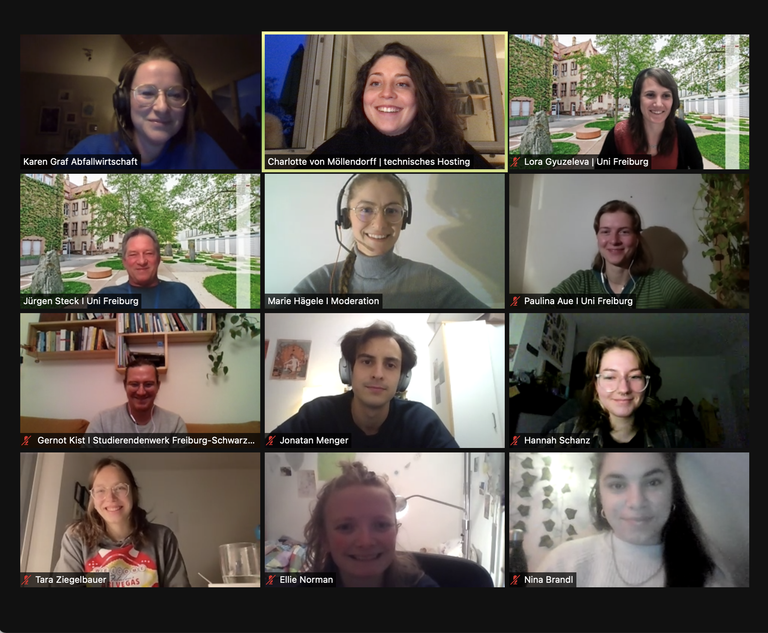Workshop Reduce & Recycle - waste management at the university and in the dormitories
At the end of November, an idea workshop on communication and waste prevention for students took place as part of the European Week of Waste Prevention. Under the title "Reduce and Recycle - Waste Management in Uni and Residence Halls", ideas for better information channels for waste prevention and separation were collected from engaged students.
Image: Lara Quaas
Problems and challenges
First, problems in waste management were identified, where students particularly addressed the issues of a lack of organic waste in the dormitories and that they wished for more support and trust from Studierendenwek (SWFR) for possible solutions to the waste problem. Gernot Kist from SWFR explained about the challenges posed by overflowing dumpsters, rats, and too-frequently misplaced trash. The composting pilot project at the campus dormitory and the expansion of food-sharing shelves and for-free stores, for example in the Händel dormitory and in the StuSie, were mentioned as positive developments. Students addressed as well the issue of more disposable waste from take-away in the dining halls, which was introduced by the SWFR as a response to the corona pandemic. Dr. Jürgen Steck, head of the Department for Safety, Environment and Sustainability, addressed the problem of to-go cups, which increasingly contaminated the waste paper, as well as other misplaced waste, especially in the public university buildings.
Input from Waste Management and Sanitation Freiburg
The guest speaker was Karen Graf, environmental educator of the ASF, who gave a presentation on the purpose and statistics of waste separation. Since some waste contains valuable raw materials, it is important to constantly increase the proportion of recycling, which currently accounts for 46% of the total volume of waste in Germany. This can be achieved, for example, by an abandonement from composite materials (which cannot be recycled), separating garbage cans and materials correctly (e.g. packaging and lids) and spoon-clean disposal (meaning that food leftovers can be removed by a spoon before the disposal).
Ideas and suggestions
This was followed by a discussion among the participants about possible communication strategies that could be used to improve waste prevention and separation in student every-day-life. In addition to the idea of a starter package for new students and a poster for the shared kitchens, it was suggested that the dormitory councils be involved and that a contact person be appointed for waste separation in the individual hallways. A permanent overview page or detailed information brochure on proper waste separation, also for international students, was also considered useful, while an expansion of digital formats such as Instagram stories or podcasts could probably only reach people who already showed interest in the topic. Students therefore emphasized the need for a low-threshold and site-specific approach. The Department of Safety, Environment and Sustainability and the Studierendenwerk would now like to implement these suggestions together and hope for feedback and support from the students in order to better reach their target group.


